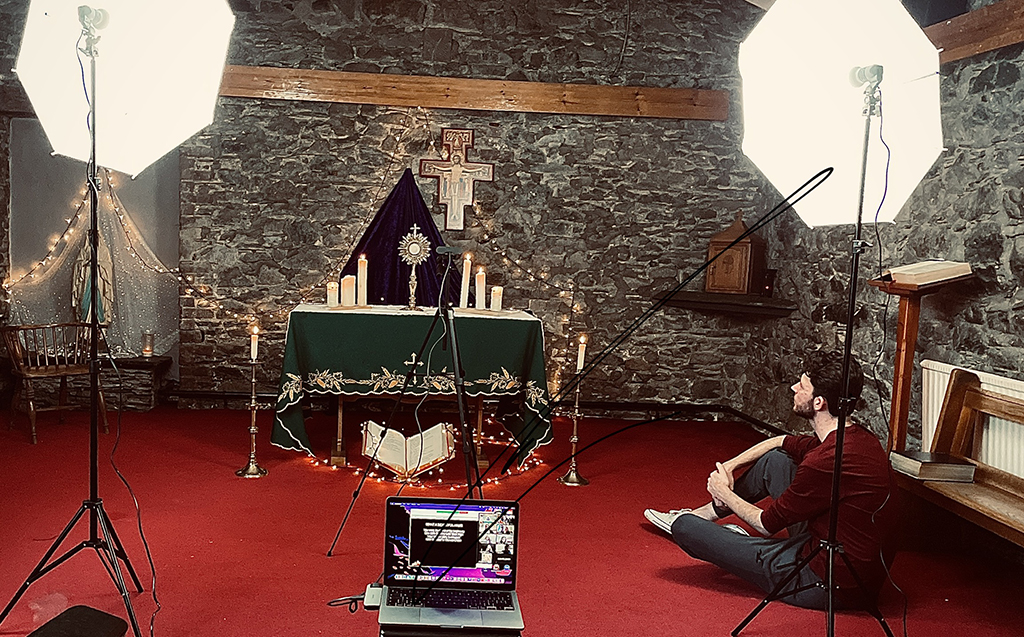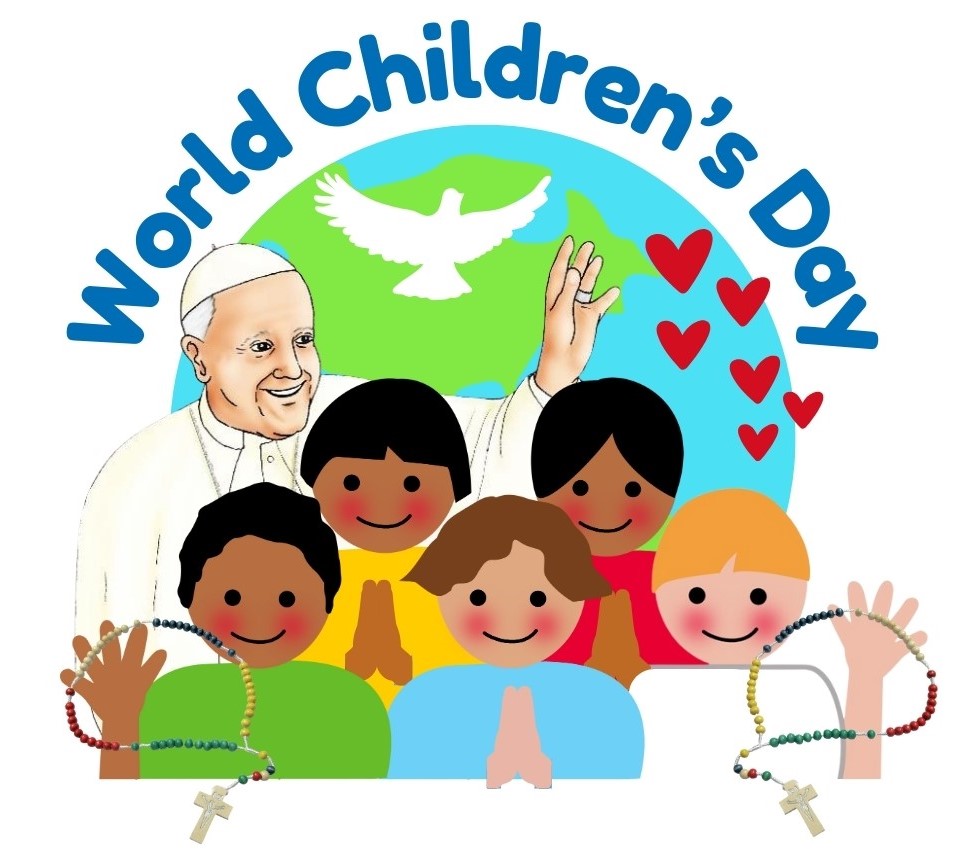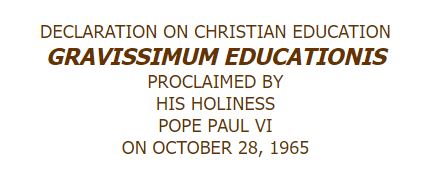CES statement on Ofsted's 'Deep and meaningful? The religious education subject report'
The CES welcomes the very thorough and research-grounded subject report on Religious Education (RE) that Ofsted has published today (17 April).
The report includes a clear articulation of what good quality RE looks like in schools without a religious character but also offers some significant criticisms of RE and its teaching.
Catholic school RE results at GCSE are up to seven percentage points above the national average, with around a quarter of all those nationally taking RE GCSE being pupils in Catholic education.
By law, Catholic schools in England teach a Catholic RE curriculum which is inspected independently of Ofsted. A new Religious Education Directory and model curriculum were published last year.
Philip Robinson, Catholic Schools Inspectorate Chief Inspector, said: “We welcome this report – and the recent return of bursaries for RE teacher training. While the report does not speak to RE specifically in Catholic schools it is heartening that many of the criticisms of the quality of RE taught elsewhere are not typically true of Catholic education.
“We anticipate this progress will continue as schools implement the new Religious Education Directory and model curriculum.”
'There is a pressing need for chaplaincy to inspire a renewed passion for the Mass': a school chaplain in Leeds diocese explains his vocation
 My name is Alex Hill (pictured, left), and I am the Lay Chaplain at Holy Family Catholic School in Keighley. I am 25 years young and have a passion for guiding and supporting our students on their spiritual journeys.
My name is Alex Hill (pictured, left), and I am the Lay Chaplain at Holy Family Catholic School in Keighley. I am 25 years young and have a passion for guiding and supporting our students on their spiritual journeys.
I became a Chaplain in a school because I have a passion for supporting and guiding young people through their spiritual and emotional journeys. My desire to provide a safe and nurturing space for students, where they can explore their beliefs, seek guidance, and find comfort during difficult times, motivated me to take on this role. I see it as an opportunity to make a positive impact on students' lives and help them navigate the complexities of adolescence with compassion and understanding all the while helping them journey to a closer relationship with Christ and the Father.
I received similar support myself from a Chaplain when I was younger and was inspired to pay it forward and provide students with the same compassionate guidance and understanding that helped me during my formative years.
My time spent in retreat centres across the country not only deepened my personal connection with Christ but also ignited a desire to share this transformative experience with others. Inspired by the profound sense of peace and spiritual growth I found in these retreats, I am dedicated to creating similar opportunities for students to encounter Christ and explore their faith in meaningful and profound ways.
I received two years of professional training at Maryvale University in Birmingham in youth ministry and school chaplaincy, where I was equipped with the necessary tools and experience. Drawing from my own experiences and the expertise gained through my training, I’m committed to providing compassionate support and guidance to students as they navigate their own spiritual paths.
As a Chaplain in a school, I recognise the need to modernise our approach to chaplaincy while still honouring and celebrating the rich traditions of the Catholic Church. Understanding that young people are drawn to authenticity, passion, and personal testimony, I strive to create a dynamic and engaging environment where these values are embraced. I encourage innovative approaches to faith formation and spiritual growth while ensuring that the timeless traditions and beliefs of the Catholic Church are respected and upheld. My goal is to foster a balanced and inclusive spiritual community where students can explore and deepen their faith with reverence and authenticity.
Chaplaincy in schools faces challenges due to the allure of modern life and the absence of a strong connection with Christ through regular mass attendance at home. There is a pressing need for chaplaincy to inspire a renewed passion for the Mass and foster a continued relationship with Christ beyond the school grounds. As a chaplain, I aim to bridge this gap by creating opportunities for students to experience the richness and relevance of the Mass in their daily lives. Through engaging liturgies, meaningful reflections, and intentional discipleship, I seek to cultivate a deeper understanding of the Eucharist and its significance in nurturing a personal relationship with Christ. My goal is to empower students to carry the spirit of the Mass with them beyond the school walls, fostering a lifelong journey of faith and spiritual growth.
To find out more about becoming a school chaplain, please contact your diocese.
Mission Together gets ready to celebrate the first World Children’s Day
 Mission Together, the children’s branch of Missio, the Pope’s charity for overseas mission, is helping children to join with their global sisters and brothers to celebrate World Children’s Day in their school or parish.
Mission Together, the children’s branch of Missio, the Pope’s charity for overseas mission, is helping children to join with their global sisters and brothers to celebrate World Children’s Day in their school or parish.
The Catholic Church’s first World Children’s Day will take place on 25-26 May 2024. Pope Francis announced the inauguration of this special day on 8 December 2023 at the end of the Angelus.
The concept came from a nine-year-old boy, Alessandro, who, just a few months earlier had written to Pope Francis with an idea to bring children together from different countries for a special event. Alessandro’s hope was that the children could get to know one another, play and pray together, and become friends.
Alessandro’s idea leans into the practice of accompaniment, which Pope Francis says is at the centre of being a missionary disciple. For the Holy Father, accompaniment means encountering others and listening to them so that we can form connections, build relationships, and reflect the love of Jesus to them.
World Children’s Day invites children from around the globe, including those from areas of conflict and children of different faiths, to join together as sisters and brothers. Although the event focus will take place in Rome,
Pope Francis calls on Catholics around the globe to celebrate this special event in their own Diocese too.
Cardinal Mendonça, World Children’s Day Director, said: "World Children’s Day is an occasion to put children, who are the present and the future of humanity, back at the centre of the world's attention.
"It offers children the possibility to become protagonists through moments of prayer, friendship, and formation."
As Catholic schools in England and Wales are significantly more ethnically diverse than the state school averages within England and in Wales, World Children’s Day provides a great opportunity to celebrate the many cultures within Catholic school communities and remind pupils, parents, and staff that we all belong to God’s global family.
To help schools celebrate World Children’s Day, Mission Together has produced several free resources. These include an introductory assembly, Celebration of the Word, Activities, Celebrating our Cultures ideas sheet, Virtual map Explorer Worksheets, and more.
All Mission Together resources aim to help children recognise themselves as members of God’s global family, working in solidarity for the benefit of all, with a special concern for those living in poverty. Supporting Mission Together through prayers and donations helps to provide feeding programmes, residential care, and educational, pastoral, and spiritual support to some of the world’s poorest children.
Download the free World Children Day resources
If you are interested in becoming a Mission Together volunteer, please contact Claire at This email address is being protected from spambots. You need JavaScript enabled to view it.
What does Vatican II say about education?

Many parishes have been marking the 60th anniversary of the Second Vatican Council by offering introductory courses on its content and impact on Catholic faith.
While liturgical changes are among the most conspicuous of the Council’s legacies, the Declaration on Christian Education, known as Gravissimum Educationis (roughly ‘the importance of education’), provides a glimpse back to an era haunted by war and ideological division. The document subsequently informed much of current canon law on education.
The Second Vatican Council produced three levels of teaching document, the four Constitutions being the most significant, overarching and developed; nine Decrees dealt with specific areas; while the three Declarations were shorter and for topics where less had been previously published.
What emerged is a Catholic exposition of education, a field in which the Church had expertise since its beginnings, but before the twentieth century had yet to articulate in quite such a formal way. The contemporary context for Gravissimum Educationis, though, was shaped by a generation in the shadow of two world wars, and with the European and Asian continents still militarily and ideologically divided.
State control
Throughout much of European history, the principal providers of education, beyond parents, were not governments but churches.
The French Revolution, however, saw the seizure of assets such as Church colleges and the dismissal of priests and religious as teachers. Some of these crossed the Channel to found schools and colleges in England. In the new Republic, the government acted to fill the gap it had created with a secular monopoly on education. These new ideas about the role of the State started to spread across continental Europe, and were consolidated in the nineteenth century.
The 1920s and 1930s saw the rise of totalitarianism in other parts of Europe, and the further spread of secular State monopolisation in schools. In 1929 Pope Pius XI reacted by setting out the respective roles of Church and State in the encyclical letter On Christian Education, known as Divini Illius Magistri (‘the divine teacher’), and again in On the Church and the German Reich, known as Mit Brennender Sorge (‘with burning concern’), in 1937.
After the Second World War the Soviet Union expanded its atheist State monopoly in education across two continents. This was the context in which the Second Vatican Council’s discussions took place.
Rights and responsibilities
In 1959, shortly after his election, Pope John XXIII announced an ecumenical council to ‘discern the signs of the time’. Gravissimum Educationis was approved by his successor Pope Paul VI in October 1965.
Although mainly concerned with schools, the Declaration also refers to colleges and universities. Several themes run through the document, namely the nature of education and the universal right to it, along with the duties and rights of parents, the Church, Catholic schools and civil society.
The Declaration begins by outlining the significance of education and welcoming its growth in modern society, while acknowledging that there were still many in the world without even rudimentary training.
True education is defined as the complete formation of the whole person, ordered towards the pupil’s eternal destiny, as well as the common good of society. The harmonious development of physical, moral and
intellectual talents, nurturing a sense of responsibility and the right use of freedom and formation to take an active part in social life are key components.
Christ at the Centre
Within a universal right to education for all, Christians have a right to a Christian education, to assist them to become mature Christian adults and thereby to help shape the world.
Parents have a serious obligation to educate their children, and the right to be recognised and assisted by the State as their ‘primary and principal educators’. Parents must be ‘truly free to choose according to their conscience the schools they want for their children’ and governments should ‘always keep in mind the principle of subsidiarity so that there is no kind of school monopoly.’
The Church has, in a special way, the duty of educating in the light of its divine mission to help all to arrive at the fullness of Christian life. This is especially so regarding ‘the needs of those who are poor in the goods of this world or who are deprived of the assistance and affection of a family or who are strangers to the gift of Faith.’
The ministry of teachers is a true apostolate and a service to society. They have the greatest possible influence in enabling a Catholic school to achieve its purposes.
Adult education
The Declaration briefly covers further and higher education. Catholic colleges and universities are to ensure that proper freedom of enquiry lead to a deeper understanding of how faith and reason accord in one truth.
Such institutions should be opened around the world, particularly enabling those of slender means in emerging nations to attend.
There should also be Catholic spiritual assistance offered in non-Catholic higher education, that today has taken the form of university chaplaincies. Similarly, on non-Catholic and Catholic campuses alike, students of ability who seem suited for it ‘should be specially helped and encouraged to undertake a teaching career,’ in anticipation of the ongoing need for teacher recruitment.
Conclusion
We are fortunate to have built a Catholic education system in this country which reflects the principles of Gravissimum Educationis — 2,169 Catholic schools alongside others offer parents a real choice of schools. Catholic schools’ GCSE RE results are also the best in the country. There are four Catholic universities, all of which started as teacher training colleges, as well as ecclesiastical faculties and institutes of higher studies.
Mission runs clear throughout Gravissimum Educationis. The message of parental freedom of choice outlasted the Soviet Union, finding itself echoed in the European Convention on Human Rights and the Human Rights Act 1998. But continual vigilance is necessary, as is seen by the emergence of the so-called ‘Abidjan Principles’ on the international stage. They demonstrate that, six decades on, the idea of a State monopoly in education which this this insightful document of the Second Vatican Council warns against have not gone away.

